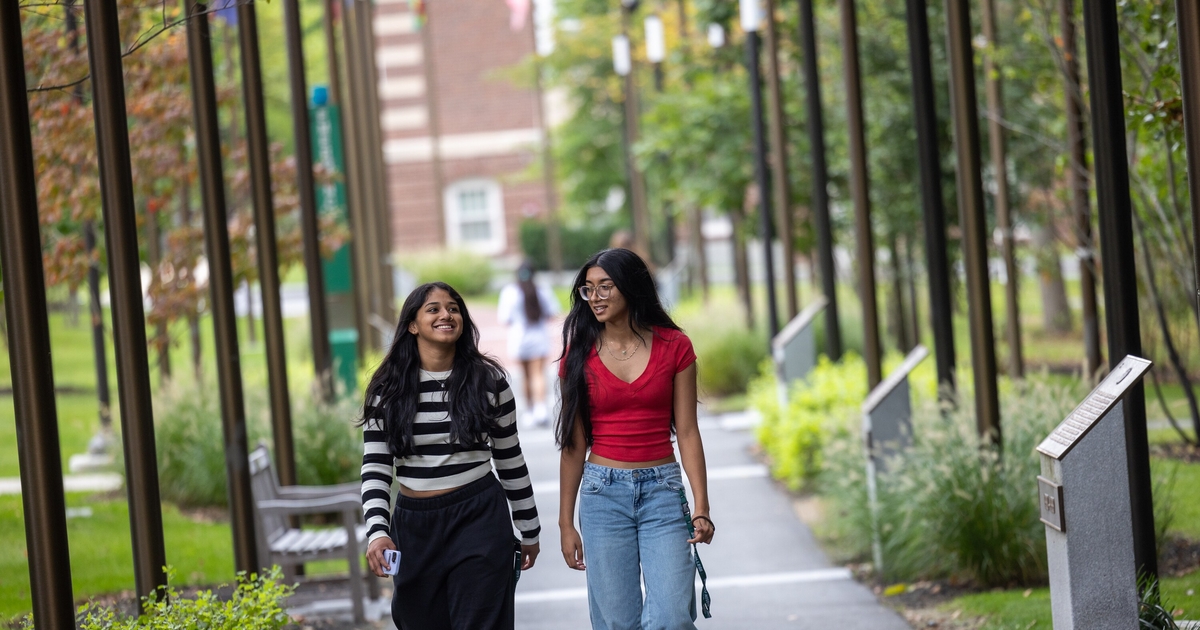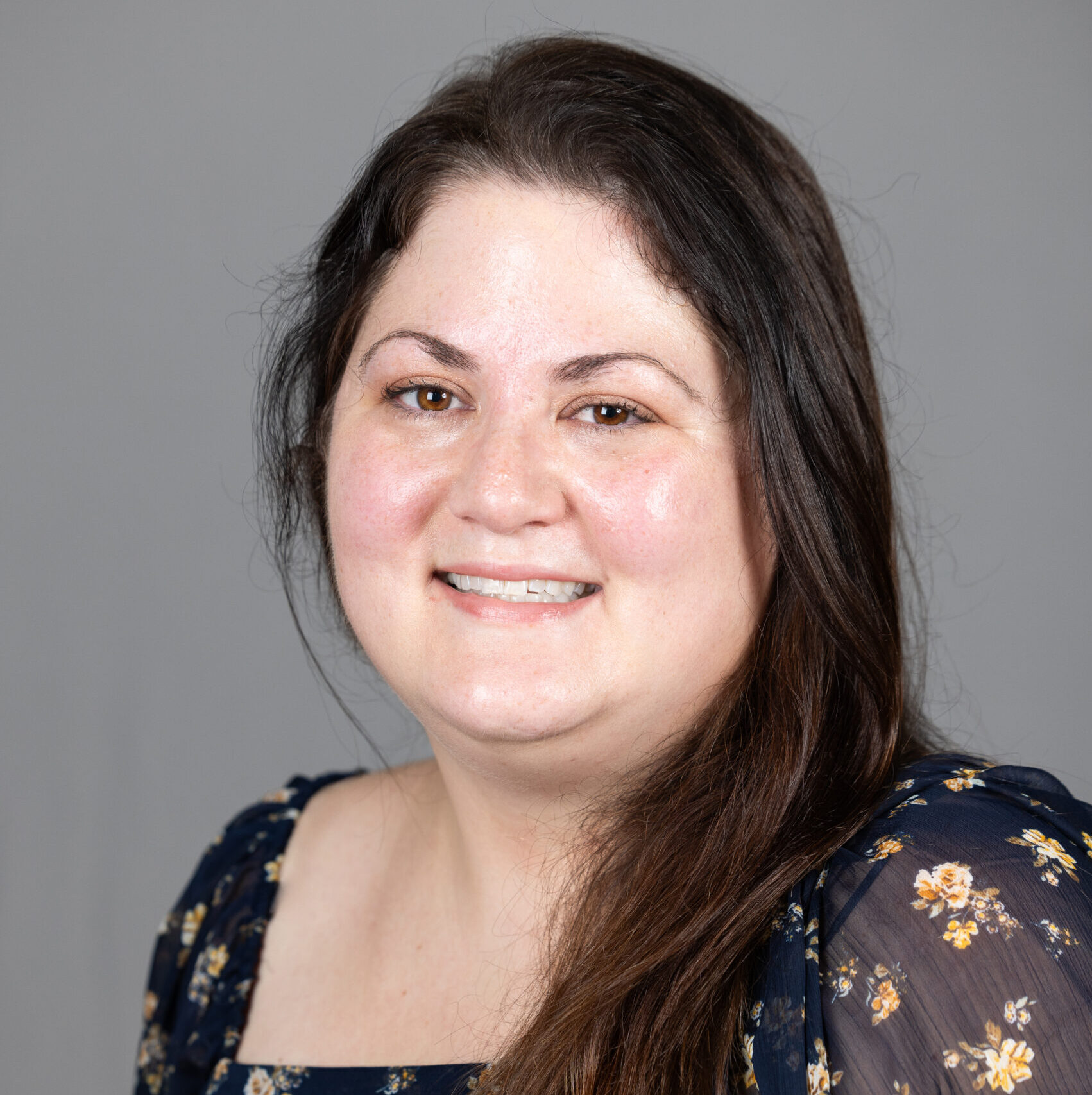Babson Students Share Secrets to Navigating the College Transition

The college adjustment is, well, an adjustment. Between living somewhere new and academic priorities, figuring out how to take care of yourself and meet people can feel like an afterthought.
“The first year of college is overwhelming as well as exciting and challenging, especially as students acclimate to a new environment … and, for many, learn to live on their own for the very first time,” says Ryan Travia, associate vice president for student success at Babson College.
With this life change comes experiences you maybe didn’t encounter in high school. While it can feel unique to you at the beginning, it’s an experience upperclassmen and the entire Babson community can speak to with the knowledge that it does get easier.
The adjustment may be common, but your specific Babson concoction is entirely yours. Fellow Babson students shared how they found their footing while navigating their first year.
Reject the Timeline
After high school, you may notice that life gets less linear. There is no strict timeline for when life events are meant to happen.
“It takes time to find your people on campus,” Julia Marcelis ’27 says. “I didn’t meet most of my best friends until second semester, and I wish I’d known how normal that is during my first year.”
The key is to be patient and kind with yourself as you navigate both new schedules and emotions.
“Most students end up feeling homesick or unsure of what to do next when they first get to college,” Maddie Stoltz ’27 says. “I recommend taking things at a pace that feels comfortable for you. It can be as simple as joining a club to meet new people or putting together a daily schedule to help you keep track of classes and assignments.”
Ask for Help
It’s simple advice, but finding courage sometimes means finding the right resource.
Counseling and Psychological Services (CAPS) offers reoccurring counseling sessions, same-day sessions, short-term therapy, referrals to off-campus resources, an emergency hotline, and access to a wraparound service called Uwill. All these services are free and confidential.
“When I was extremely homesick last semester, I was able to get a same-day appointment and process my feelings with a professional,” Marcelis says. “It was incredibly useful, and I highly recommend working with CAPS when you need support.”
While CAPs offers professional guidance, you also have access to trained, kind students ready to offer advice and support in a safe manner. That includes Peers on Wellness (POW), a student-run organization that promotes health and wellness on campus, and residence hall staff.
“Being able to talk to other students about the struggles you might be facing without the fear of embarrassment is super important,” Will Holland ’26 says. “(POW and resident assistants) do a good job of being available for all students as they have likely been through similar challenges. I truly believe everyone on this campus is a good resource.”
Know Where to Look
Sometimes identifying that right resource is as easy as a Google search or knocking on your RA’s door. Finding events and groups on campus may take more finesse. Within any given week, Babson organizations and offices hold events ranging from career guidance to guest speakers and art installations.
“It could involve staying an extra minute or two at the mailroom to check out flyers, thoroughly reading the undergraduate emails, or signing up for new email lists,” Everett Steven ’27 says. “Just today, I received information about an AI event through the Butler Launch Pad, the Sustainability Fair, and the weekly events from the Office of Belonging and Inclusion monthly newsletter.”
“(Peers on Wellness and resident assistants) do a good job of being available for all students as they have likely been through similar challenges. I truly believe everyone on this campus is a good resource.” Will Holland ’26
With over 100 clubs and organizations, you will find something outside of class that speaks to you, whether it’s Greek Life, sustainability initiatives, first-generation student resources, or one of the finance clubs. Pushing yourself to attend at least one event a week is a great way to introduce yourself to new topics. What interests you may surprise you and also guide you through other aspects of college.
“If you feel nervous speaking in front of crowds and want a low-stress way to practice that, I highly recommend joining Babson’s improvisational comedy group, Students Against Gravity,” Marcelis says. “It’s a fun and relaxing way to try something new and meet cool people.”
Avoid Overextending
Travia suggests not treating college like high school, especially in regard to extracurriculars. “Try to find one or two activities that fuel your passions and engage meaningfully in those experiences as opposed to signing up for everything and getting stretched too thin,” he says.
Students like Lilly Bedard ’26 have similar advice. She suggests students find what truly interests them before making full commitments. “Bogging yourself down with a lot of responsibilities will quickly make your experience less than satisfying overall.”
She also recommends meeting with career services early to alleviate stress about internships and your career path. For ways to decompress, she loves to play piano at the Glavin Family Chapel, read on the quad, and explore nearby walking trails.
Ultimately, there’s no equation to make the transition go from difficult to a mere memory. It takes a push out of your comfort zone and patience, but the result will be more than worth it.
“By exposing yourself to new perspectives and connecting with others, you will encounter exciting opportunities,” Steven says. “Most importantly, you will enjoy your time at Babson.”
Posted in Community




